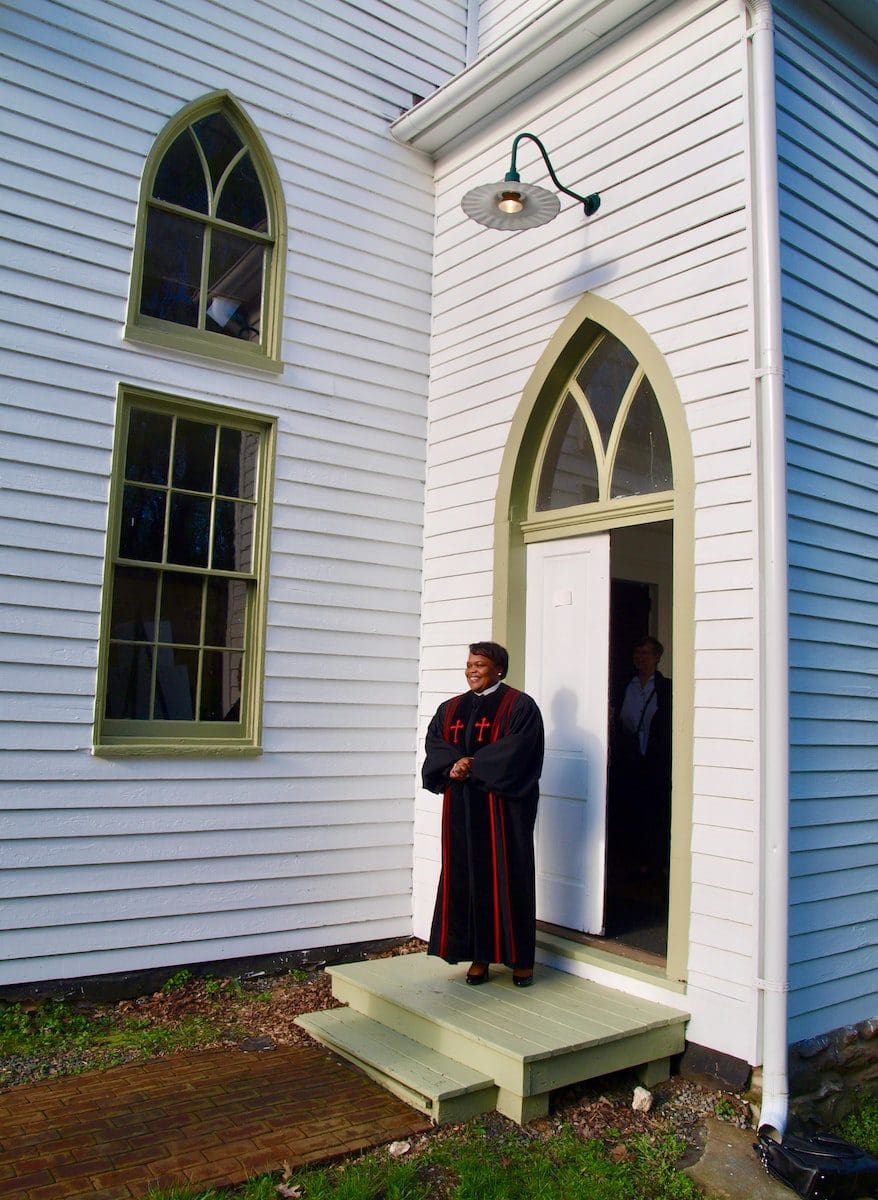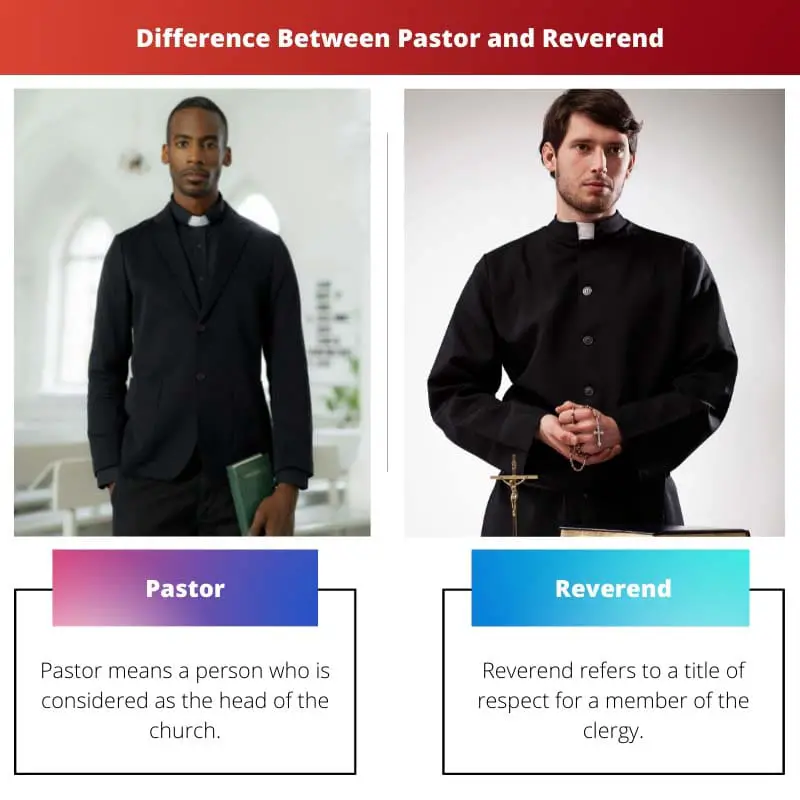A leader of spiritual activities commands tremendous respect from members of religious sects. However, the members may be confused about how to address or call these admired leaders.
Most importantly, there is common confusion about using the terms “Pastor” and “reverend” and their appropriate use regarding the relevant spiritual authorities.
Key Takeaways
- A pastor is a religious leader responsible for leading a congregation, providing spiritual guidance, and performing religious ceremonies within a specific church or denomination.
- Reverend is an honorific title used to address or refer to ordained ministers or clergy members in various Christian denominations, not limited to pastors.
- The key difference between a pastor and a reverend is their roles and scope; a pastor specifically leads a congregation and provides spiritual guidance, while a reverend is a broader title used for ordained ministers across different roles and denominations.
Pastor vs Reverend
A pastor is an individual that is given the responsibility of managing the church, and it is a term associated with the Christian religion. A reverend is a religious title that refers to an individual that is a member of clergy or member of priests in other religions apart from Christianity.

However, the above is not the only difference. A comparison between both the terms on specific parameters can shed light on subtle aspects:
Comparison Table
| Parameter of Comparison | Pastor | reverend |
|---|---|---|
| Meaning | Pastor refers to the person entrusted with the overall administration of the church. Pastor means a person who is considered the head of the church. | Reverend refers to a title of respect for a member of the clergy |
| Noun/Adjective | Pastor is a noun | Reverend is an adjective |
| Person/Title | Pastor refers to the person (i.e. parish priest) | Reverend refers to the title of that person (i.e. parish priest) |
| Function/Occupation | The pastor can be considered as a function or occupation | Reverend can be viewed as an honourable title |
| Attribute | The pastor does not denote any tag being given to the head of the church | Reverend distinguishes a title for a priest of the Christian church |
| Religion Type | Pastor is a term commonly associated with the Christian religion | Reverend style may be used to refer to members of the priest in other religions |
| Origination | The word “Pastor” originated in the 14th century before the phrase reverend came into being | The word “reverend” originated in the 15th century, i.e. after the word “Pastor” came into being |
What is Pastor?
Pastor is derived from the Latin word Pastor, meaning “shepherd”. This means “to lead to pasture”.
This word and its meaning have been adapted to religious aspects. From a spiritual perspective, a pastor is the church’s minister.
The term “Pastor” was first used in the 14th century.
A pastor, as used by Catholics, is known as a parish priest. Pastor denotes the head clergyman of the Catholic church or a minister or priest in charge of a church.
A pastor is a person who exercises spiritual guidance over several people or members of the church. A pastor is a person who is in spiritual and jurisdictional charge of a parish, church, congregation, or community.
Pastor has the necessary power and control to lead and guide religious services. A pastor will enable the management of church services and help and direct others on worshipping.
Pastor is looked for advice by churchgoers, who command tremendous respect.
A pastor is a person who has been appointed as such or is being conferred holy orders to conduct religious and prayerful services. The pastor will lead Sunday mass and other religious or solemn ceremonies.
The pastor may be used as a religious title also, such as example, Pastor John, but this may be rare. The reason is that the pastor is more used as a noun than a title or adjective.

What is Reverend?
Reverend is derived from the Latin word “reverendus”, which means “to stand in awe of”, i.e. a feeling of reverential respect mixed with fear or wonder. In other words, something which is worthy of honour and respect.
Reverend was first used in the 15th century.
Reverend means a title for a member of the clergy. As Pastor means the head of the church, reverend means a title given to such clergy.
This may be synonymous with a title provided to someone from the military or defence, such as a major or colonel. For example, it may be stated that “The service was led by the reverend John Davies.”
Reverend can be considered a title implying or expressing high status, politeness, or respect conferred on a clergy member. Reverend can be added at the beginning as a prefix or introduction to the first name, initials, and last name.
Reverend with a surname alone, such as “reverend Davies” or using it in a letter, such as “Dear Rev. Mr Davies”, is considered wrong or inappropriate usage of the title. The correct usage would be “reverend John Davies” or “reverend Mr Davies.”
The Reverend title denotes that the person has a substantial mastery and exposure to the religious services of the church. A clergy with the title of reverend will be able to solemnize more benefits than a clergy/pastor who doesn’t have such a title.

Main Differences Between Pastor and Reverend
- Pastor means a clergyman serving a local church or parish. Reverend is an honorary style placed before the name of the Christian clergy.
- Pastor refers to a parish priest. Reverend refers to a title being provided to a parish priest.
- Pastor is a noun. Reverend is an adjective.
- The pastor does not signify any title being provided to the head of the church. Reverend denotes a title which is supplied to the head of the church.
- Pastor is a term that originated before the word reverend was used. The word reverend was used after the word pastor came into being.
- Pastor is a type of function or occupation. Reverend is not a type of function or occupation.
